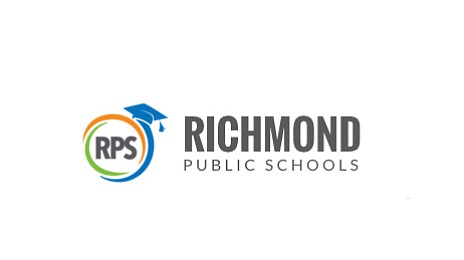18 out of 44
That’s how many city public schools are fully accredited
Jeremy M. Lazarus | 9/15/2017, 10:44 a.m.
By Jerermy M. Lazarus
The good news: 18 of Richmond’s 44 public schools — 41 percent — are fully accredited based on relatively high student pass rates on state Standards of Learning tests.
That’s an increase from last year’s 17 accredited schools, according to the Virginia Department of Education.
The bad news: Richmond has 19 schools that have been denied accreditation because of low student pass rates on SOL tests.
That’s an increase of six schools from last year and by far the largest number of schools in a single district denied accreditation in the state.
The Virginia Department of Education released on Wednesday the accreditation status of 1,823 public schools statewide.
Richmond Public Schools does not come off looking good in a year when 86 percent of all public schools are rated as fully accredited, up 5 percent from 2016.
The number of failing schools in Richmond was not a surprise given the VDOE August report on the percentage of city students passing SOL tests.
Those results showed that students in a majority of the city’s schools were not meeting the benchmarks — a 75 percent pass rate on reading tests and a 70 percent pass rate in three other core areas — history, math and science.
Interim Superintendent Thomas E. “Tommy” Kranz focused on the positives from the new state accreditation report.
He expressed pride that 24 of 44 Richmond schools are either fully or partially accredited, although last year, Richmond had 28 schools that were fully or partially accredited.
He also pointed out that four elementary schools denied accreditation last year or that were only partially accredited have become fully accredited in the latest report —John B. Cary, Miles Jones, Elizabeth D. Redd and J.E.B. Stuart.
He also spotlighted schools such as Chimborazo and Miles Jones elementaries and Albert Hill and Henderson middle schools that reported increases in student SOL pass rates in a specific subject, such as science or math.
School Board Chair Dawn Page also focused on the positives.
“While our ultimate goal is to achieve full accreditation for all of our schools, we are proud of the efforts of the entire RPS team. I believe our internal support system, coupled with our collaboration with VDOE, will enable us to meet our goal of providing equitable education opportunities for all of our students,” she said.
She noted that RPS is developing a corrective action plan through a memorandum of understanding with the VDOE that is aimed at aligning efforts to achieve full accreditation.
Unmentioned, however, are the years of effort, the heavy spending and multiple corrective action plans that RPS has created with VDOE to raise student achievement at multiple schools that have failed to show success.
For example, of the six elementary schools that were partially accredited last year as their leadership and staffs were reconstituted under action plans approved by VDOE, four — J.L. Francis, Ginter Park, Oak Grove and G.H. Reid — were denied accreditation this year as a result of low SOL test results. John B. Cary and Miles Jones, the other two, went on to full accreditation.
Overall, 14 of the city’s 26 elementary schools are rated as fully accredited this year, up from 11 last year.
But the puzzle is why Bellevue Elementary slipped from being fully accredited to partially accredited with warning, or why nearby George Mason, Chimborazo and Woodville elementary schools in Church Hill remained on the denied list while Fairfield Court Elementary in the same area continues to be fully accredited.
The positive spin also cannot erase the fact that five of the city’s seven middle schools are not accredited, while one, Elkhardt-Thompson Middle, is only partially accredited. The status of Albert Hill Middle, which was on warning last year and only partially accredited, is still to be determined.
That poor showing in the accreditation ratings is a hard pill to swallow for many given the various private and public programs that have been deployed to the middle schools in a bid to raise student achievement. Binford Middle, which had a curriculum overhaul, remains on the denied list.
The relatively poor academic results suggest why many parents select private options for their children when they reach middle school age.
At Richmond’s newest middle school, Martin Luther King Jr., only one in four students passed SOL tests in reading and writing last spring, while only one in five passed the SOL tests in math.
Except for Franklin Military Academy, which now has middle school grades along with its high school students, none of the six other middle schools reported having 75 percent or more of students passing reading tests, an essential for accreditation.
Albert Hill came closest with 71 percent of students passing the SOL reading test last year. Lucille Brown and Binford reported about 62 percent of students passed. At the other middle schools, less than 50 percent of students passed.
Of the eight high schools, Franklin Military, Open High and Richmond Community are the only ones receiving full accreditation.
John Marshall, which was fully accredited last year, joined two other high schools as partially accredited with warning for low pass rates in key subjects. Both George Wythe and Huguenot were on warning last year and retained that status this year.
Armstrong High continues to rank at the bottom and once again was denied accreditation. Despite a bevy of improvement plans, less than 50 percent of Armstrong’s students passed SOL tests in reading, writing, history, math and science.
At Armstrong, only one in three students passed reading and math tests last spring, and just two in five passed science and writing tests.






